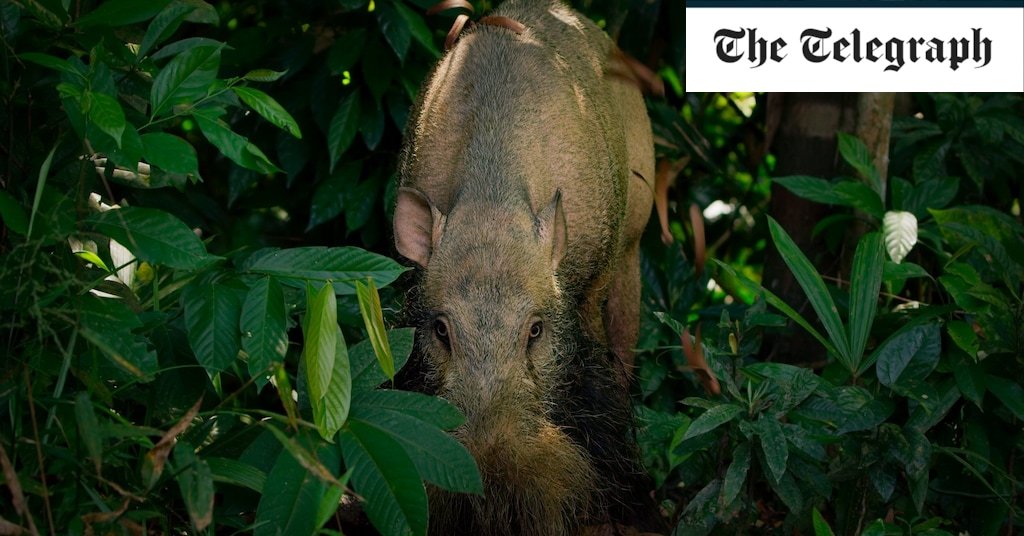
Crocodiles aren’t the only ones to lose a food source. Although Borneo’s Muslim population don’t consume pork, non-Muslim villages nestled in the rainforest relied on the bearded boars for up to 80 per cent of their protein intake.
“It was a big thing, because it really is in the culture – locals have hunted pigs for generations and generations,” says Dr Goossens, who co-authored the letter to Science. These hunts are a social lynchpin for Indigenous peoples, though bans remain in place now.
Dr Goossens’ collaborator Prof Erik Meijaard, a former chair of the IUCN Wild Pigs Specialist Group, adds that ASF is both a food security and a poverty issue.
“If you’re taking out 80 per cent of the protein you’re normally consuming and that’s completely disappeared, the question is what are you replacing it with? In many instances, that’s not clear. So it’s a health and nutrition issue for people in the forests,” he says.
Wake-up call
And then there’s the jungle itself. Wild pigs are often referred to as the gardeners or engineers of the rainforest ecosystem because of their critical role in turning over soil while scavenging for worms, browsing seedlings and dispersing seeds of fruit they’ve consumed.
“I don’t think we can predict what the long term consequences of them having much lower numbers will be at this point, but certainly there will be changes to the way the forest works,” says Prof Robert Ewers, a professor of ecology at Imperial College London, and co-author of the Nature publication.
But he adds that Borneo’s experience should be a wake-up call. If ASF hits other islands home to wild boars – such as Timor-Leste, the Philippines or Java and Sumatra in Indonesia – the populations may never recover.
“When ASF hit Europe, the [wild] pigs there came into a balance with ASF moving around the region… pigs would get mostly wiped out in one location, but then re-invade from another or rebuild populations afterwards,” Prof Ewers says. “Borneo is probably large enough for a similar dynamic to play out.
“But as ASF moves across the smaller islands of southeast Asia, there isn’t space for that dynamic to emerge, so I’m extremely concerned about the future of the endemic pig species across the archipelago.”
Dr Goossens and Prof Meijaard agreed. “Urgent research and interventions, with the participation of rural communities, should focus on preventing the spread of African swine fever to other regions where people depend on pigs,” they wrote in Science.

